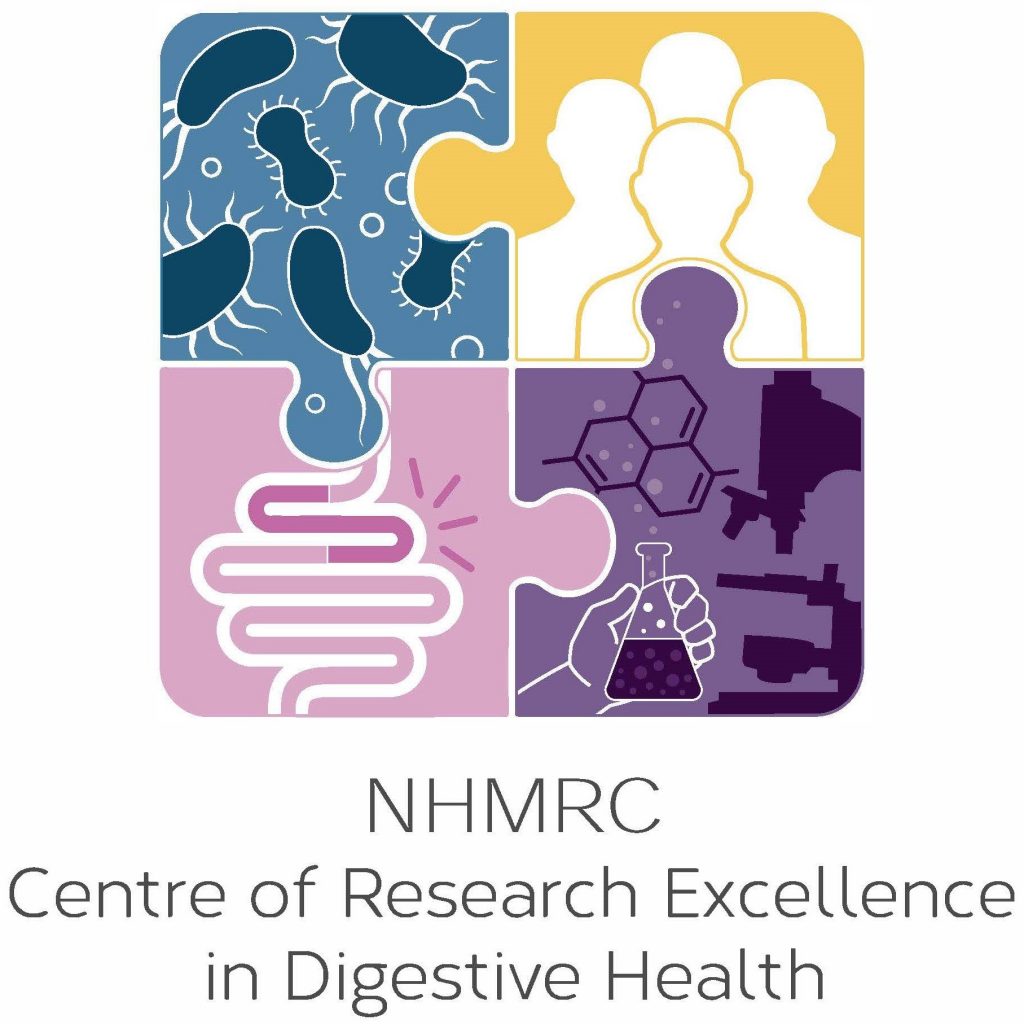The Centre in Digestive Health Research is focused on four key research questions:
QUESTION 1: What are the distinct pathophysiological phenotypes of specific chronic digestive diseases including functional gastrointestinal disorders?
The majority of patients with gastrointestinal symptoms will have unexplained gastrointestinal symptoms and subsequently be diagnosed with a ‘FGID’ as the “cause” of their symptoms. Individual FGIDs remain poorly characterised, without linking specific symptoms to disease mechanisms and underlying causes or long-term outcomes (e.g. symptoms as a consequence of a post-infectious/inflammatory modulation of visceral sensory function or as part of post-traumatic stress disorder).
The studies within our Centre of Research Excellence will be facilitated by the Australian Gastrointestinal Research Alliance (AGIRA) Biobank. This is a multi-centre, protocol-driven virtual bioresource collecting patient blood, tissue, microbial and functional/clinical data to allow deep-phenotyping for current and future research. We will link specific patient features to the long-term outcomes including health care utilisation.
QUESTION 2: What are the knowledge levels, unmet needs and coping strategies of patients with chronic digestive diseases including functional gastrointestinal disorders and how do these relate to phenotypes?
The treatment and management of chronic digestive diseases such as FGIDs is hampered by poor classification of the disease, which utilise subjective symptom-based criteria. These criteria are based on extremely broad symptom profiles which do not account for the many potential causes observed in FGIDs, and nor do they account for the wide variation in patients’ experience of the disease and perception of symptom burden. Assessment of patients’ knowledge of FGIDs, illness perception, quality of life and priority symptoms and morbidities may provide a unique and more accurate method of classifying and subgrouping FGID patients. In addition, knowledge translation approaches through patient education on their disease and current research findings (including the role of patients’ own perceptions of the disease on their disease burden) may alter illness perception and therefore impact psychological factors and quality of life associated with FGIDs.
QUESTION 3: What phenotypes and pathologies define responses to therapies and how can they be utilised to improve treatments and clinical trials?
Utilising our Bioresource and our deeply phenotyped FGID and other chronic digestive disease populations, our CRE will pursue initiatives to redefine how we identify and sub-group FGIDs and other digestive diseases based on immune, microbiome, psychological and clinical phenotypes. Projects in this theme demonstrate the potential to generate new IP and knowledge that will be translated into policy and practice for the diagnosis of FGIDs and other chronic digestive diseases.
QUESTION 4: How can better subtyping of chronic digestive diseases facilitate patient management and facilitated integrative care?
There is a need to change the delivery of care in order to meet the growing demand placed on the health care system for very common digestive diseases such as irritable bowel syndrome and functional dyspepsia. Integrated health care provided by multidisciplinary teams, focussing on work flows and pathways that promote co-ordinated, patient-centred care across the different sectors of the health care system is essential. In the field of gastroenterology it has emerged that dedicated multi-professional models of care provide superior and cost-effective patient outcomes as compared to traditional services for digestive diseases such as inflammatory bowel disease but this approach has been little studied in FGIDs and other chronic digestive diseases.
